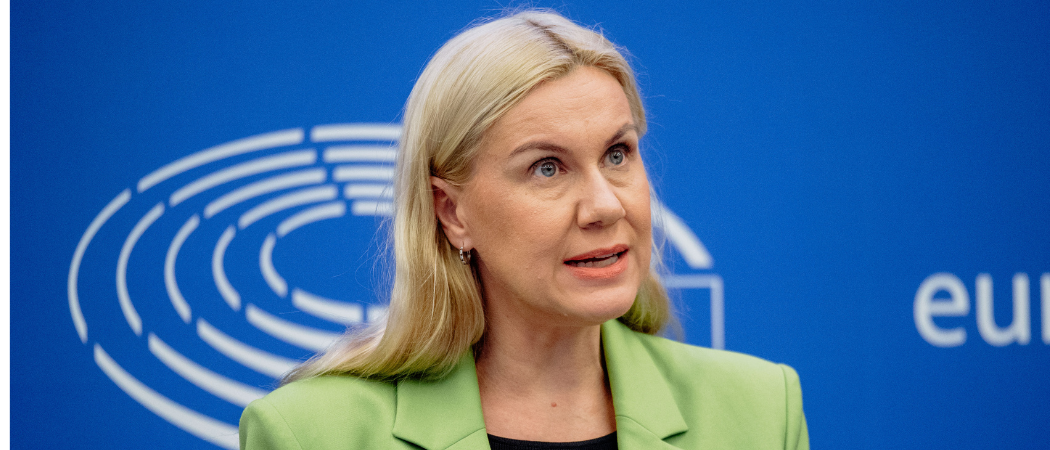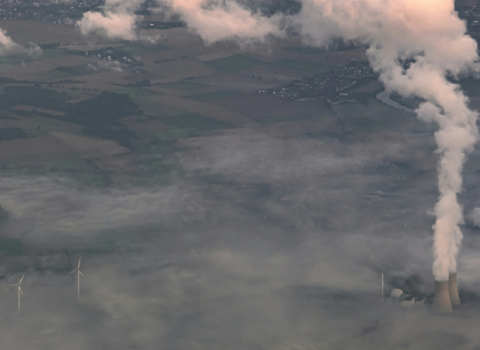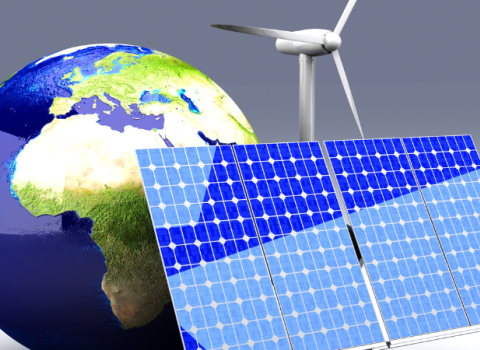Brussels hopes to have the first small-scale nuclear power station in operation in the next decade, with a newly established industry alliance key to that ambition

EU Energy Commissioner Kadri Simson first announced the plans to create a small modular reactor alliance in September 2023. Photo: European Union
The European Commission this week opened a call for industry partners to join a new alliance to advance the development and deployment of small modular reactors (SMRs).
The move is part of the Commission’s 2050 climate neutrality objective and follows its recent declaration that all technologies will be needed to reach that goal.
The EU’s industrial alliances do not benefit from any direct funding. “Whilst the alliance itself does not have a budget, it does create a framework that will facilitate the deployment of SMRs by streamlining stakeholders: industry and decision makers,” a spokeswoman for trade association Nucleareurope told Science|Business.
Small-scale nuclear power stations are billed as being safer and cheaper than conventional reactors and should be quicker to build because of standardised designs that can be manufactured at scale and shipped to the site.
The technology is still largely unproven, but several projects are planned around the world. US company NuScale Power has an agreement with Romania’s Nuclearelectrica to build a cluster of six SMRs on the site of a former coal plant, which could be deployed in 2029. Those plans are part of Project Phoenix, a US plan to replace coal-fired power plants with SMRs, with projects in Czechia, Slovakia and Poland also in line to receive support for feasibility studies.
China is also a frontrunner, and in 2021 began construction work on the Linglong One plant, which is expected to enter commercial operation by the end of 2026.
European countries remain divided over nuclear energy, but advocates say SMRs could be used in areas such as district heating, industry, and hydrogen production, where other low-carbon alternatives are not viable.
The Commission organised the first EU workshop on SMRs in 2021, leading to a proposal for a European SMR partnership, involving industry, research and technology bodies and potential customers.
In November 2023, ahead of the European Nuclear Energy Forum, 12 EU energy ministers sent a letter to the Commission calling for an industry alliance to stimulate investment in SMRs. Shortly after, EU Energy Commissioner Kadri Simson announced at the forum the intention to set up an alliance.
The European Parliament has also been actively pushing for action at EU level to ensure Europe doesn’t fall behind and maintains its strategic autonomy. In December 2023, MEPs backed a call for the development of SMRs, recognising the “need to sufficiently explore and identify all possible options for financing European SMR production and scale-up and support the related supply chain”.
The EU hopes that the new alliance will lead to the deployment of the first reactors in the next decade. “We want this Alliance to deliver benefits in very practical terms - through full engagement on nuclear safety, using European supply chains, and by boosting innovation for new technologies,” said Simson on announcing the call for partners.
The European Commissioner for research and innovation, Iliana Ivanova, said that SMRs are key to Europe’s strategic autonomy.
Industry welcomed the announcement. Yves Desbazeille, director general of Nucleareurope, said he was delighted at the move and hoped it would help Europe overcome the challenges related to deploying SMRs in Europe.
“The European nuclear industry has been at the forefront of innovation and industrial excellence for decades and this industrial alliance will help maintain our industry’s world class position,” Desbazeille said.
The development of the first SMRs has not been plain sailing, however. In November, NuScale Power cancelled its SMR project in Utah, which was due to be the first SMR plant built in the US. The plans fell through when it became clear the project would not have enough customers, after costs spiralled.
Twenty-five countries from around the globe, including several EU countries, have signed a declaration to triple nuclear energy capacity by 2050 after an initial agreement reached at the latest United Nations Climate Change Conference (COP 28) in December last year. A notable European absentee from the list of signatories is Germany, which dismisses nuclear as an option and favours other green energy sources. It is not clear what involvement German companies will have in the new SMR alliance.
The launch of the industrial alliance was not the first boost for the sector this week, as nuclear energy was also included in the list of technologies covered by the Net-Zero Industry Act, under the agreement reached by the Parliament and Council on Tuesday.
The Commission’s call for partners, which can include private companies working on nuclear tech, financial institutions, research organisations, civil society organisations or others interested in the field, will remain open until 12 April.
Before that, an event on SMR dissemination will be held on the sidelines of the Nuclear Energy Summit on 21 March, organised by the Belgian presidency of the EU and the International Atomic Energy Agency (IAEA). Later in spring the Commission plans to hold the first general assembly of the alliance.





 A unique international forum for public research organisations and companies to connect their external engagement with strategic interests around their R&D system.
A unique international forum for public research organisations and companies to connect their external engagement with strategic interests around their R&D system.